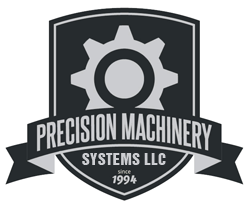Solutions for Sustainable Waste Management: Maximizing Efficiency with In Home Trash Compacting Technology
In an era where sustainability is more crucial than ever, innovative solutions for waste management are rapidly gaining traction. One such solution that stands out is the In Home Trash Compactor, a device designed to maximize efficiency and minimize the volume of waste generated within our households. As we strive to live more eco-friendly lives, the adoption of in-home trash compacting technology not only helps to reduce landfill contributions but also encourages responsible waste disposal practices. Through the effective use of these compactors, families can streamline their waste management processes, leading to significant reductions in both waste output and associated costs. This blog will explore the numerous benefits of In Home Trash Compactors, highlighting how they contribute to sustainable living while enhancing convenience and hygiene in everyday life.

Innovative Home Trash Compactors: Transforming Waste Management Solutions
Innovative home trash compactors are reshaping the landscape of waste management by offering sustainable solutions that not only maximize efficiency but also promote responsible consumption. As urbanization intensifies and waste generation continues to rise, the demand for effective waste management solutions has never been greater. Home trash compactors emerge as a critical technology, providing a practical means to minimize waste volume, thereby easing the burden on landfill sites and contributing to a circular economy.

The smart trash bin market is expected to experience substantial growth, with projections indicating a compound annual growth rate (CAGR) of over 27.88% from 2025 to 2032, ultimately surpassing USD 28.12 billion by 2032. This surge reflects a growing recognition of the need for innovative waste management practices. By integrating advanced features and user-friendly designs, these compactors not only streamline waste disposal processes but also encourage households to adopt more environmentally-friendly habits. As communities and manufacturers collaborate to promote eco-conscious packaging and recycling initiatives, the impact of technology on sustainable waste management becomes increasingly significant.
Benefits of In-Home Trash Compacting Technology for Sustainable Living
In today's world, sustainable living has become more crucial than ever, and in-home trash compacting technology offers an innovative solution that aligns with this goal. By reducing the volume of waste produced, these compactors not only help minimize landfill contributions but also enhance overall efficiency in waste disposal. This technology can significantly reduce the frequency of garbage pickups, ultimately leading to lower carbon emissions associated with waste transport.
Tips for maximizing the benefits of in-home trash compacting technology include placing the compactor in a convenient location to encourage usage and regularly maintaining the machine for optimal performance. Additionally, sorting recyclables before compacting can further enhance eco-friendliness by ensuring that recyclable materials are properly managed and don’t end up in landfills.
Moreover, investing in a high-quality trash compactor can lead to long-term savings. Not only does it reduce waste volume, thereby decreasing disposal fees, but it also aids in conserving natural resources by ensuring that more materials are recycled. Transitioning to in-home compacting technology is an essential step towards a more sustainable and responsible household.
Maximizing Waste Efficiency: How Compacting Reduces Volume and Frequency
In a world increasingly focused on sustainability, waste management practices must evolve to meet rising environmental standards. Compacting waste in-home stands out as an effective solution for maximizing waste efficiency. According to the Environmental Protection Agency (EPA), residential garbage constitutes about 22% of overall solid waste, with much of it being bulkier items that take up significant space. By integrating in-home trash compacting technology, homeowners can reduce the volume of their waste by as much as 50%, resulting in fewer trips to the curb and, consequently, reduced carbon emissions associated with waste collection services.
Furthermore, the reduction in waste frequency not only benefits the environment but also enhances convenience for residents. A study conducted by Waste Management Research indicates that households utilizing compacting technologies see a substantial decrease in the frequency of their waste collection, with evidence suggesting that some families can cut down their collection frequency by up to 75%. This reduction in waste volume allows local municipalities to allocate resources more efficiently and can even translate into lower waste management costs for consumers. Thus, embracing in-home trash compacting technology is a practical step towards fostering a sustainable future and creating cleaner communities.

Real-Life Examples: Successful Implementation of Trash Compactors in Households
In recent years, the adoption of in-home trash compacting technology has emerged as a critical solution for improving household waste management. In Malaysia's East Coast, research indicates that poor waste disposal practices significantly hinder integrated solid waste management efforts. For instance, a report highlights that an estimated 40% of household waste is not disposed of properly, resulting in detrimental environmental impacts and reduced efficiency in waste management systems. By integrating trash compactors into homes, residents can substantially compress their waste volume, leading to fewer collections and less frequent trips to landfills.
Several households have successfully implemented trash compactors, demonstrating notable improvements in both waste reduction and cleanliness. A case study revealed that a family using a compacting system reduced their weekly garbage output by up to 50%. Not only does this technology promote a more organized and hygienic living environment, but it also encourages residents to become more conscious of their waste production habits. According to a survey conducted by waste management authorities, 75% of respondents noted a greater awareness of their waste generation after adopting such technologies, reinforcing the idea that effective waste management starts at home.
Solutions for Sustainable Waste Management: Maximizing Efficiency with In Home Trash Compacting Technology
| Household | Compacting Technology Used | Waste Volume Reduction (%) | Monthly Waste Savings ($) | Implementation Year |
|---|---|---|---|---|
| Household A | Hydraulic Compactor | 75% | $30 | 2021 |
| Household B | Electric Compactor | 60% | $25 | 2020 |
| Household C | Manual Compactor | 70% | $28 | 2022 |
| Household D | Smart Compactor | 80% | $35 | 2023 |
Future Trends in Waste Management: The Role of Compacting Technology in Sustainability
As the world grapples with increasing waste generation, the integration of compacting technology in home waste management stands out as a key trend towards sustainability. Compacting technology not only reduces the physical volume of waste but also optimizes disposal processes, making it easier for households to manage their waste efficiently. By compressing trash into more manageable sizes, homeowners can significantly decrease the frequency of trips to landfills, thereby minimizing carbon footprints associated with waste collection and transportation.
Moreover, the future of waste management is closely tied to advancements in compacting technology. Innovations such as smart compactors that can monitor waste levels and suggest optimal disposal times are emerging, allowing families to further streamline their waste practices. These developments could lead to more sustainable waste behaviors, as consumers become more conscious of their environmental impact and make informed choices about resource consumption. By embracing compacting technology, households can not only reduce waste but also participate actively in the larger movement towards a more sustainable future.
Related Posts
-
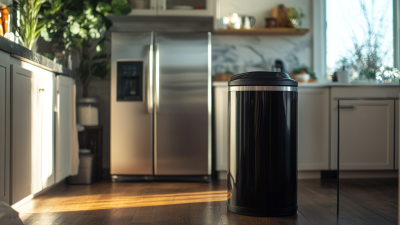
The Ultimate Guide to Choosing the Right In Home Trash Compactor for Your Needs
-
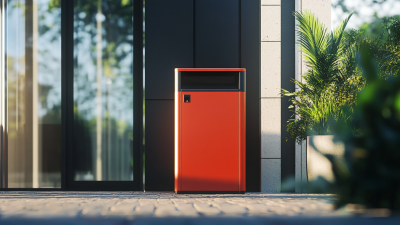
Essential Techniques for Sourcing Automatic Trash Compactors in a Competitive Market
-
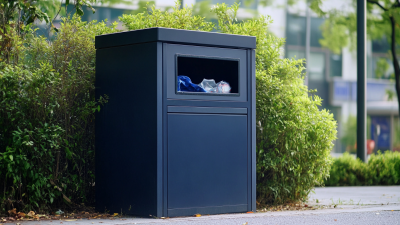
Exploring the Features and Uses of Best Automatic Trash Compactors: A Comprehensive How-To Guide
-

Setting the Benchmark for In Home Trash Compactors in Global Manufacturing Standards
-
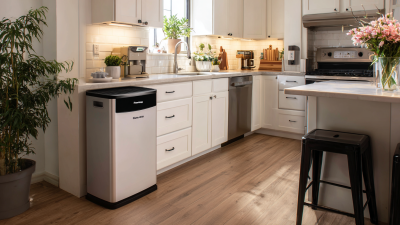
The Ultimate Guide to Choosing the Best In Home Trash Compactor for Your Needs
-
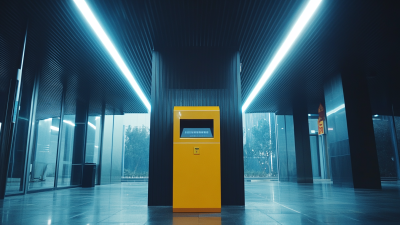
The Ultimate Resource for Global Buyers on Automatic Trash Compactor Innovations
